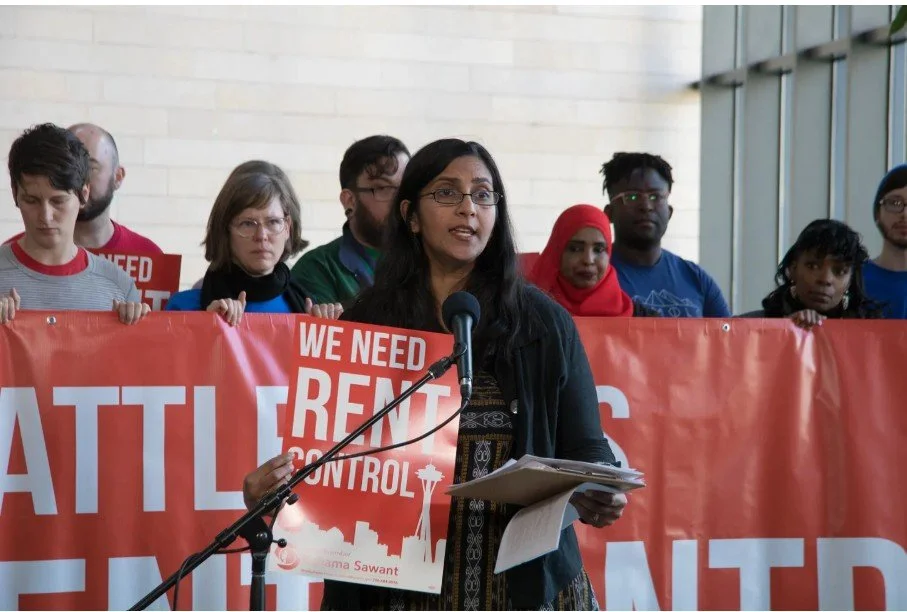Government is Controlling Costs on Healthcare? Cool. Now Do Rent.
This piece originally appeared on Fran Quigley’s blog Housing Is A Human Right on October 10, 2025.
Until we get much more and much better public housing and universal housing assistance for all who qualify, most of our eviction court clients and most of the working-class and low-income people in our country are forced to find housing in the private market.
That is why rent control is both deeply popular and deeply effective in the communities where it is in place. I wrote about rent control in detail here a couple of years ago and in my book Lessons From Eviction Court.
Thank you to my hometown newspaper The Indianapolis Star for this week publishing my article calling for rent control in our state. The same argument can be made in all communities where there are no limits on the price of rent. You can read the article at the Star’s site here, or below:
Our law school clinic represents low-income tenants in local eviction courts. One day not long ago, William (I won’t use his real name) came into court with a problem.
William was in his 80’s and living on a fixed Social Security income. He had been able to afford his rent on his apartment for over a dozen years, even with the annual small increases in cost. He knows his neighbors well, and moving would be very difficult at his age.
But William’s neighborhood was gentrifying, and an out of state corporation had recently purchased his building, aiming for more upscale tenants. The new landlord raised the rent more than twenty percent. William could not afford that, but he had no idea where he could go.
When I saw that the Indiana General Assembly this year passed legislation aimed at limiting healthcare costs, I thought of William. Senator and Majority Floor Leader Chris Garten told Indiana healthcare providers to “get your prices in line or we’ll do it for you.”
Our Hoosier lawmakers need to build on their healthcare action by taking similar steps to address our state’s affordable housing crisis. A recent report by Prosperity Indiana showed that millions of low-wage Hoosiers and their families struggle to afford their rent. That outcome is not surprising, since the Indiana Business Research Center has pointed out that rents in Indiana metro areas increased by more than 30% between 2020 and 2023.
So the legislature needs to institute rent control statewide, or at least allow local communities to make their own decisions on how to address the rising rent costs contributing to the over 70,000 evictions filed each year in Indiana.
Rent control is as American as apple pie. Over 180 municipalities in the United States limit rent increases, usually at an amount linked to overall inflation. Among those are both large cities and smaller communities, including dozens of small towns and townships in New Jersey.
Indiana’s new caps on healthcare prices follow healthcare cost controls that have been in place for years at the federal level. And we all benefit from existing government controls on the cost of other necessities like electrical power, water, and sewage. Throughout U.S. history, price controls on goods like food and other necessities have been imposed on multiple occasions, including by the Richard Nixon administration in the 1970s.
For those of us fortunate enough to own our own homes, we likely already enjoy what Rutgers University economist Mark Paul calls “de facto rent control”—the government created 30-year mortgage with the predictable costs and housing stability our renting neighbors do not enjoy. This benefit and the generous government-provided tax breaks on mortgage interest and home sales means that if we own our home, we likely are the ones living in subsidized housing.
Some may be familiar with the Economics 101 argument that rent control depresses housing supply. But many economists are now reconsidering that position, joining with housing experts and lawmakers in arguing for price controls on rental housing with government-backed loans.
Atlantic magazine’s noted housing writer Jerusalem Desmas is among those who changed her mind to become a rent control supporter. Desmas notes that the Economics 101 argument once also claimed minimum wage increases similarly depress supply--until the data disproved the argument.
Most importantly, rent control has proven time and again to achieve its primary goal: keeping housing affordable, and allowing renters like William to stay in their homes. Just like our healthcare cost crisis, we are in the midst of a rental housing cost crisis in Indiana. Our lawmakers need to step up.

